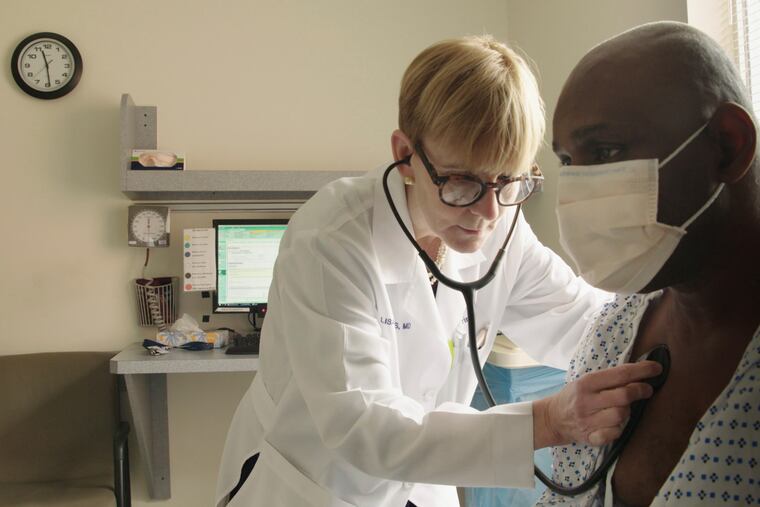Netflix’s ‘Diagnosis’ and the ethical perils of medical crowdsourcing
Buried in the glossy, highly produced series is this question: can a virtual community of strangers, some experts, some laypeople, compensate for the deficits of a health care system that does not adequately serve patients?

The Netflix documentary series Diagnosis is a medical experiment in crowdsourcing answers to unsolved illnesses. Each episode features an individual suffering from inexplicable symptoms that are undiagnosed despite years of expensive and ineffective medical attention.
Buried in the glossy, highly produced series is this question: Can a virtual community of strangers — some experts, some laypeople — compensate for the deficits of a health-care system that does not adequately serve patients?
That may be an appealing concept. But especially at a time of decreased trust in science and expertise, Diagnosis at times seems to be reinforcing a culture of “Dr. Google” where all opinions are equally valid.
Lisa Sanders, the Yale University primary care physician who writes the New York Times Magazine column that spawned the show, acts as a benevolent shepherd, leading patients and families through a flurry of online suggestions for stubbornly unsolved medical ailments. She listens attentively, provides emotional support, and curates online responses to the question she has asked the world at large: “What’s the diagnosis?”
Over the course of seven episodes, patients and families tell their stories and express the heartbreak, loneliness, and frustration of living with debilitating chronic illness. As the tearful father of one teenage patient puts it, “We’re left to fend for ourselves.”
Angel, a young woman featured in the first episode, was an athletic teen until debilitating muscle pain sidelined her. She sets off to take a hike with friends, only to be helped back to the car, doubled over in pain. She wants to finish college and practice nursing; instead, she is a hostage to her mysterious illness.
Matt, a young man experiencing heart-stopping fainting spells, is trapped at home by the possibility that another terrifying spell could strike at any time.
A mother worries about her young daughter, who loses consciousness and stops breathing dozens of times every day. Cameras roll as she is perched at the top of a playground slide, regaining consciousness just before she tumbles backward, down the steps.
The financial toll of their illnesses is crushing. Angel alludes to multiple legal threats from doctors over unpaid bills and the possibility that she may need to declare bankruptcy; she maintains a GoFundMe page to help defray her medical expenses. Anne, a freelance writer, says she can’t afford insurance, and the coverage it offers is insufficient anyway.
At its best, the show connects patients with experts who provide a diagnosis and start appropriate treatment. Comfort floods the faces of many subjects as they connect via screen with fellow sufferers from across the globe.
At its worst, the crowd veers toward mob behavior, like when responders dismiss the suffering of a teenage girl plagued by unexplained vomiting. Numerous commenters discount the symptoms as psychosomatic, self-imposed ailments.
At a time when measles outbreaks linked to vaccine misinformation spread across the globe, and where celebrity-backed wellness brands peddle dubious therapies, Diagnosis risks blurring the distinction between layperson and trained professional, and downplays the importance of science-based medical practice.
There are good questions at the heart of this show: How do we weigh the value of professional expertise? How do we connect patients with needed support? As we continue to engage in a national conversation about reshaping our health-care system, what is the role of patient and family experiences and stories?
The suffering and isolation showcased in Diagnosis are a poignant reminder of how completely illness can derail lives. The awareness is not limited to patients. “As doctors,” notes Sanders, “we delve so deep into the disease that we overlook the patient.” The moments worth paying attention to as the series unfurls are those that highlight the stress and pain of illness and the ways in which they impact patients and families and reshape lives. People leave jobs and quit school, stop doing the activities that make life meaningful, get depressed, and lose hope because they are unable to feel better.
To create a health-care system that adequately supports and heals people, we must listen to patients and families; each of these seven stories contains an important lesson about what is missing.
Aliza Narva is a lawyer, a registered nurse, and the director of ethics at the Hospital of the University of Pennsylvania.